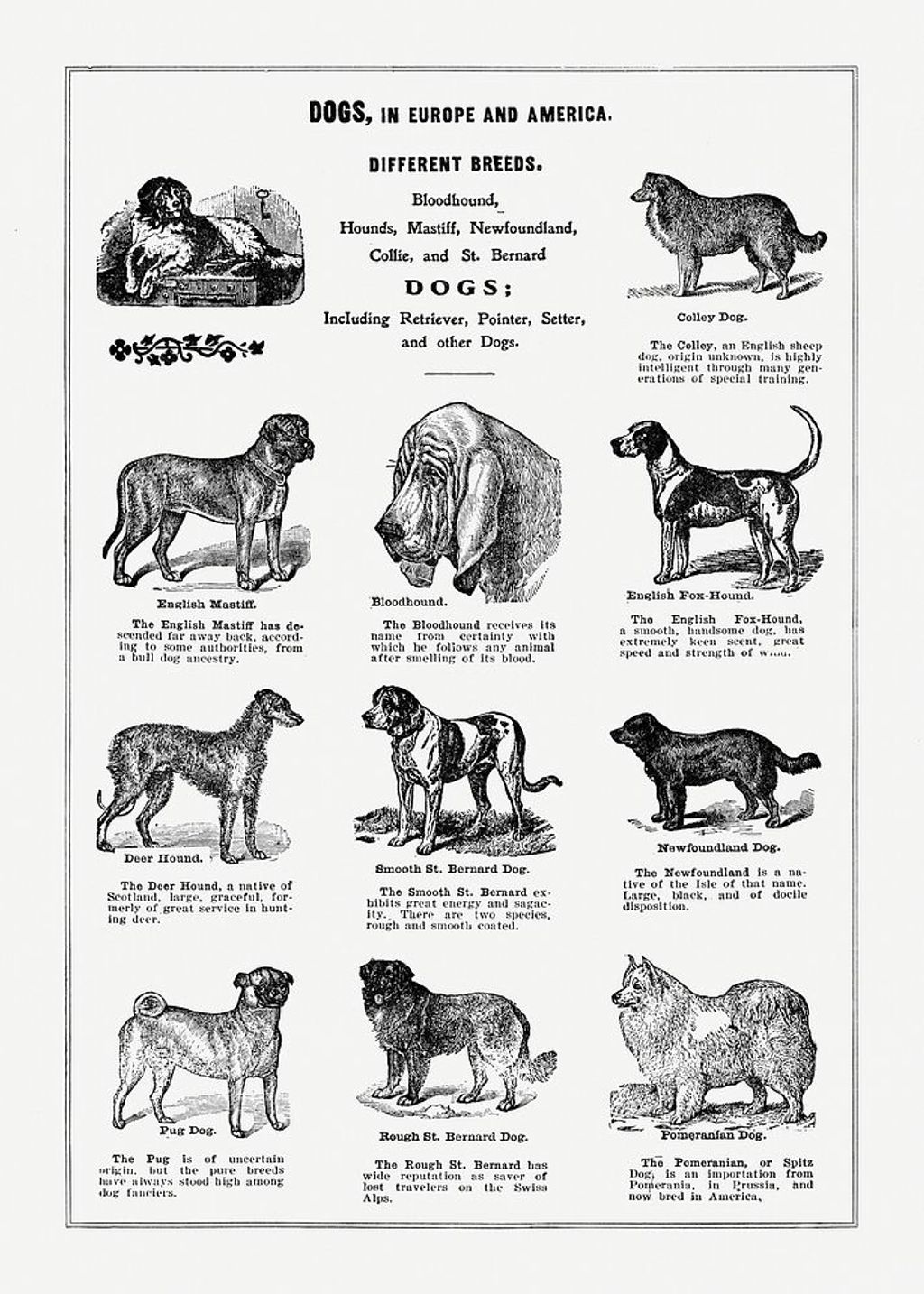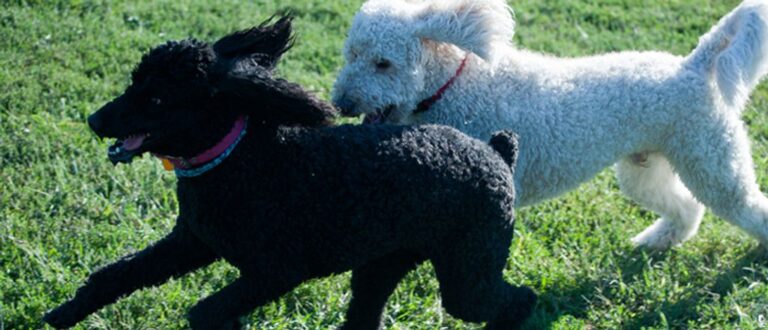Researching Specific Dog Breeds Before Adoption: What You Need to Know
Researching specific dog breeds before adoption is crucial to ensure a successful and fulfilling relationship with your new furry friend. Understanding the importance of researching dog breeds allows you to make an informed decision based on your lifestyle, living situation, personality, and energy level. Factors to consider when researching dog breeds include size and exercise needs, temperament and behavior, and grooming and maintenance requirements. By delving into the specific characteristics, health issues, genetic predispositions, training, and socialization needs of different dog breeds, you can find the perfect match for you. To find reliable sources for dog breed information, consider breed clubs and associations, veterinarians and breeders, and online resources and reviews. Keep these key takeaways in mind to make the best choice for both you and your future canine companion.
Key Takeaways
- Researching dog breeds before adoption is essential for a successful relationship.
- Consider your lifestyle, living situation, personality, and energy level when choosing a dog breed.
- Factors to consider include size and exercise needs, temperament and behavior, and grooming and maintenance requirements.
- Delve into the specific characteristics, health issues, genetic predispositions, training, and socialization needs of different dog breeds.
- Reliable sources of dog breed information include breed clubs and associations, veterinarians and breeders, and online resources and reviews.
Understanding the Importance of Researching Dog Breeds
The Impact of Dog Breed on Lifestyle
When considering adopting a dog, it is important to understand the impact that the dog breed can have on your lifestyle. Different dog breeds have different characteristics and needs, which can greatly affect your daily routine and overall lifestyle.
One important factor to consider is the size of the dog. Larger breeds may require more space and exercise, while smaller breeds may be more suitable for apartment living. It is essential to ensure that your living situation can accommodate the size and activity level of the dog.
Another consideration is the exercise needs of the breed. Some breeds are highly energetic and require a lot of exercise to stay happy and healthy, while others are more laid-back and require less physical activity. It is crucial to match your own energy level with that of the breed to ensure a harmonious relationship.
Additionally, the temperament and behavior of the breed should align with your own personality and lifestyle. Some breeds are known to be more independent and aloof, while others are more affectionate and sociable. Understanding the breed’s temperament can help you determine if it is a good fit for your lifestyle.
Lastly, it is important to consider the grooming and maintenance requirements of the breed. Some breeds have long, luxurious coats that require regular grooming and maintenance, while others have shorter coats that are easier to manage. If you have limited time or resources for grooming, it is essential to choose a breed that fits your grooming capabilities.
Considering Your Living Situation
When considering your living situation, it is important to think about the size and energy level of the dog breed you are interested in. If you live in a small apartment or have limited outdoor space, a large and highly active breed may not be suitable. On the other hand, if you have a spacious home with a backyard, a larger breed with high exercise needs may be a good fit.
Additionally, you should consider the tolerance of your living situation for noise and shedding. Some dog breeds are known to be more vocal or shed more than others. If you live in an apartment building with thin walls or have allergies, you may want to choose a breed that is known for being quieter or having minimal shedding.
Lastly, it is important to consider any restrictions or regulations that may be in place in your living situation. Some rental properties or housing communities have breed restrictions or size limits, so it is crucial to research and ensure that the breed you choose is allowed in your living environment.
Matching Your Personality and Energy Level
When researching dog breeds, it is crucial to consider how well a breed’s personality and energy level align with your own. Personality plays a significant role in the compatibility between you and your future furry companion. Some breeds are known for being energetic and playful, while others are more laid-back and relaxed.
It is important to assess your own energy level and lifestyle to determine if you can meet the needs of a particular breed. If you lead an active lifestyle and enjoy outdoor activities, a high-energy breed may be a good fit. On the other hand, if you prefer a more relaxed and low-key lifestyle, a breed with lower exercise requirements may be more suitable.
Consider your personality traits as well. Are you an outgoing and social person who enjoys meeting new people and dogs? Or do you prefer a quieter and more independent lifestyle? Some breeds are more sociable and friendly, while others are more reserved and independent.
To help you make an informed decision, here is a table summarizing the personality and energy levels of some popular dog breeds:
| Breed | Personality | Energy Level |
|---|---|---|
| Labrador Retriever | Friendly, outgoing | High |
| Bulldog | Calm, relaxed | Low |
| Border Collie | Intelligent, active | Very high |
Remember, finding a dog breed that matches your personality and energy level is essential for a harmonious and fulfilling relationship.
Factors to Consider When Researching Dog Breeds
Size and Exercise Needs
When researching dog breeds, it is important to consider the size and exercise needs of the breed. The size of a dog can have a significant impact on your living situation and the space available for the dog to move around. Larger breeds may require more space and a larger yard to accommodate their size. On the other hand, smaller breeds may be more suitable for apartment living or homes with limited space.
Exercise needs also vary among different dog breeds. Some breeds, such as Border Collies and Labrador Retrievers, are highly energetic and require a lot of exercise to keep them mentally and physically stimulated. These breeds are best suited for active individuals or families who can provide them with ample exercise opportunities.
On the other hand, there are breeds that have lower exercise needs, such as Bulldogs and Pugs. These breeds are more laid-back and may not require as much physical activity. It is important to match the exercise needs of the breed with your own lifestyle and energy level to ensure a harmonious relationship.
To help you better understand the exercise needs of different dog breeds, here is a table summarizing the exercise requirements of some popular breeds:
| Breed | Exercise Needs |
|---|---|
| Border Collie | High |
| Labrador Retriever | High |
| Bulldog | Low |
| Pug | Low |
Remember, it is crucial to provide your dog with the appropriate amount of exercise to keep them healthy and happy. Consult with a veterinarian or breed expert to determine the specific exercise needs of the breed you are interested in adopting.
Temperament and Behavior
When researching dog breeds, it is crucial to consider the temperament and behavior of the breed. Each breed has its own unique set of characteristics that can greatly impact your experience as a dog owner.
One way to understand the temperament and behavior of a breed is to look at their historical purpose. For example, herding breeds like Border Collies are known for their intelligence and high energy levels, while breeds like Golden Retrievers are known for their friendly and gentle nature.
Another important factor to consider is the trainability of the breed. Some breeds are more eager to please and easy to train, while others may require more patience and consistency.
It is also essential to research any specific behavioral issues that a breed may be prone to. For instance, some breeds may have a tendency towards aggression or separation anxiety. Understanding these potential challenges can help you make an informed decision and ensure a good match between you and your future furry companion.
To summarize, when researching dog breeds, pay close attention to their temperament, historical purpose, trainability, and potential behavioral issues. This will help you find a breed that aligns with your lifestyle and ensures a harmonious relationship with your new dog.
Grooming and Maintenance Requirements
When researching dog breeds, it is important to consider the grooming and maintenance requirements of each breed. Some breeds have high grooming needs, requiring regular brushing, bathing, and professional grooming. Others have low grooming needs and may only require occasional brushing. It is essential to understand the level of grooming commitment you are willing to make before adopting a specific breed.
In addition to grooming, maintenance requirements such as exercise and diet should also be taken into account. Some breeds have high exercise needs and require daily walks or vigorous playtime, while others are more laid-back and require less physical activity. Similarly, different breeds may have specific dietary needs or restrictions, so it is important to research and provide the appropriate nutrition for your chosen breed.
To ensure you are well-prepared for the grooming and maintenance needs of a specific dog breed, consider the following tips:
- Research the specific grooming requirements of the breed, including brushing, bathing, and professional grooming.
- Understand the exercise needs of the breed and ensure you can provide the necessary physical activity.
- Consult with a veterinarian or breed expert to learn about any specific dietary needs or restrictions.
By considering the grooming and maintenance requirements of a dog breed, you can ensure that you are able to provide the necessary care and support for your new furry friend.
Researching Specific Dog Breeds
Popular Dog Breeds and Their Characteristics
When researching specific dog breeds, it is important to understand the characteristics of popular breeds. Each breed has its own unique traits and qualities that can greatly impact your experience as a dog owner. Here are some popular dog breeds and their key characteristics:
- Labrador Retriever: Known for their friendly and outgoing nature, Labrador Retrievers are great family pets. They are intelligent, loyal, and have a high energy level.
- German Shepherd: German Shepherds are highly intelligent and versatile dogs. They are often used as working dogs in roles such as police and military work. They are protective, loyal, and have a strong drive to work.
- Golden Retriever: Golden Retrievers are known for their friendly and gentle nature. They are great with children and make excellent therapy dogs. They are intelligent, obedient, and easy to train.
When considering a specific breed, it is important to research their characteristics to ensure they align with your lifestyle and preferences.
Health Issues and Genetic Predispositions
When researching specific dog breeds, it is crucial to consider their health issues and genetic predispositions. Understanding the potential health problems that a breed may be prone to can help you make an informed decision and ensure the well-being of your future pet.
Some breeds are more susceptible to certain conditions, such as hip dysplasia, heart disease, or breathing difficulties. It is important to be aware of these potential health issues and take appropriate measures to prevent or manage them.
Additionally, genetic predispositions can affect a dog’s overall health and quality of life. Certain breeds may have a higher risk of developing hereditary diseases or genetic disorders. It is essential to research and understand these genetic predispositions to provide the necessary care and support for your chosen breed.
Remember, regular veterinary check-ups, a balanced diet, and proper exercise can help mitigate the impact of these health issues and ensure your dog’s well-being.
Training and Socialization Needs
When researching specific dog breeds, it is important to consider their training and socialization needs. Different breeds have varying levels of intelligence, energy, and socialization requirements. Some breeds may be more independent and require less training, while others may need consistent and structured training to thrive.
A key aspect of training and socialization is early socialization. Puppies should be exposed to a variety of people, animals, and environments to help them develop into well-rounded and confident dogs. This can help prevent behavioral issues and ensure they are comfortable in different situations.
In addition to socialization, it is important to understand the exercise needs of a specific breed. Some breeds require more physical activity and mental stimulation than others. Providing adequate exercise is crucial for their overall well-being and can help prevent boredom-related behaviors.
To ensure successful training and socialization, it is recommended to seek professional guidance. Dog trainers and behaviorists can provide valuable advice and techniques tailored to the specific breed’s needs. They can help address any behavioral challenges and ensure a positive and rewarding training experience.
When considering a specific breed, it is essential to research and understand their training and socialization needs to ensure a happy and well-adjusted companion.
Finding Reliable Sources for Dog Breed Information
Breed Clubs and Associations
When researching specific dog breeds, one valuable resource to consider is breed clubs and associations. These organizations are dedicated to promoting and preserving specific dog breeds, and they can provide a wealth of information about breed characteristics, health issues, and training needs. Breed clubs often have knowledgeable members who are passionate about their chosen breed and can offer valuable insights and advice.
In addition to providing information, breed clubs and associations may also offer opportunities for socialization and networking with other dog owners. They may organize events such as dog shows, obedience trials, and breed-specific gatherings. Participating in these activities can not only help you learn more about the breed you are interested in, but also connect you with a community of like-minded dog enthusiasts.
When reaching out to breed clubs and associations, it is important to approach them with respect and a genuine interest in the breed. Be prepared to ask specific questions and listen to the experiences and recommendations of club members. Remember, they are experts in their breed and can provide valuable guidance to help you make an informed decision when choosing a dog breed for adoption.
Veterinarians and Breeders
When researching specific dog breeds, it is important to consult with veterinarians and breeders who have expertise in the breed you are interested in. Veterinarians can provide valuable insights into the health issues and genetic predispositions of different breeds. They can also offer advice on the specific care and maintenance requirements for each breed. Breeders, on the other hand, can provide information on the temperament and behavior of the breed, as well as the training and socialization needs.
It is recommended to schedule a visit with a veterinarian to discuss your plans of adopting a specific breed. They can perform health screenings and provide guidance on any potential health concerns. Additionally, reputable breeders can provide you with information on the breed’s lineage, ensuring that you are getting a healthy and well-bred dog.
When consulting with veterinarians and breeders, be sure to ask specific questions about the breed’s characteristics, exercise needs, grooming requirements, and any potential behavioral issues. This will help you make an informed decision and find the right dog breed that matches your lifestyle and preferences.
Online Resources and Reviews
When researching specific dog breeds, online resources and reviews can be valuable sources of information. Websites dedicated to dog breeds provide detailed descriptions of different breeds, including their characteristics, temperament, and exercise needs. These websites often include user reviews and ratings, which can give you insights into the experiences of other dog owners. Additionally, online forums and communities allow you to connect with fellow dog enthusiasts and ask questions about specific breeds. It’s important to verify the credibility of the sources you find online and cross-reference information from multiple websites to ensure accuracy.
Here are some tips for using online resources effectively:
- Read multiple sources: Don’t rely on a single website or review. Read information from different sources to get a well-rounded understanding of the breed.
- Consider the source: Look for reputable websites, such as breed clubs, veterinary associations, or established dog organizations.
- Join online communities: Participate in forums or social media groups dedicated to dog breeds to learn from experienced owners and get personalized recommendations.
Remember, while online resources can provide valuable insights, it’s always a good idea to consult with veterinarians and breeders for professional advice specific to the breed you are interested in.
Conclusion
In conclusion, researching specific dog breeds before adoption is crucial for ensuring a successful and fulfilling pet ownership experience. By understanding the unique characteristics, needs, and temperaments of different breeds, potential dog owners can make informed decisions that align with their lifestyle and preferences. Additionally, conducting thorough research can help prevent common issues such as allergies, compatibility issues, and behavioral challenges. Remember, adopting a dog is a long-term commitment, and investing time and effort in researching breeds can greatly contribute to a happy and harmonious relationship with your furry companion.
Frequently Asked Questions
What is the importance of researching dog breeds before adoption?
Researching dog breeds before adoption is important because it helps you understand the specific needs, characteristics, and potential health issues associated with different breeds. This knowledge can help you make an informed decision and ensure that the chosen breed is a good fit for your lifestyle and living situation.
How does the dog breed impact your lifestyle?
The dog breed can greatly impact your lifestyle. Some breeds are more active and require a lot of exercise, while others are more laid-back. Additionally, certain breeds may have specific grooming or training needs. It’s important to choose a breed that matches your energy level, time availability, and preferences to ensure a harmonious and fulfilling relationship.
What factors should I consider when researching dog breeds?
When researching dog breeds, it’s important to consider factors such as the size and exercise needs of the breed, the temperament and behavior traits, as well as the grooming and maintenance requirements. These factors will help you determine if a particular breed is suitable for your lifestyle and if you can provide the necessary care and attention it needs.
How can I find reliable sources for dog breed information?
There are several reliable sources for dog breed information. You can reach out to breed clubs and associations, as they have extensive knowledge and expertise on specific breeds. Veterinarians and reputable breeders are also valuable sources of information. Additionally, there are many online resources and reviews available that can provide insights and experiences from other dog owners.
What are some popular dog breeds and their characteristics?
Some popular dog breeds include Labrador Retrievers, German Shepherds, Golden Retrievers, French Bulldogs, and Beagles. Labrador Retrievers are known for their friendly and outgoing nature, while German Shepherds are intelligent and protective. Golden Retrievers are loyal and gentle, French Bulldogs are affectionate and adaptable, and Beagles are curious and sociable.
Are there any health issues or genetic predispositions I should be aware of when researching specific dog breeds?
Yes, certain dog breeds are prone to specific health issues or genetic predispositions. For example, large breeds like Great Danes may be susceptible to hip dysplasia, while Bulldogs may have breathing difficulties due to their brachycephalic skull shape. It’s important to research and understand these potential health issues to ensure you can provide the necessary care and veterinary attention for your chosen breed.







2 Comments